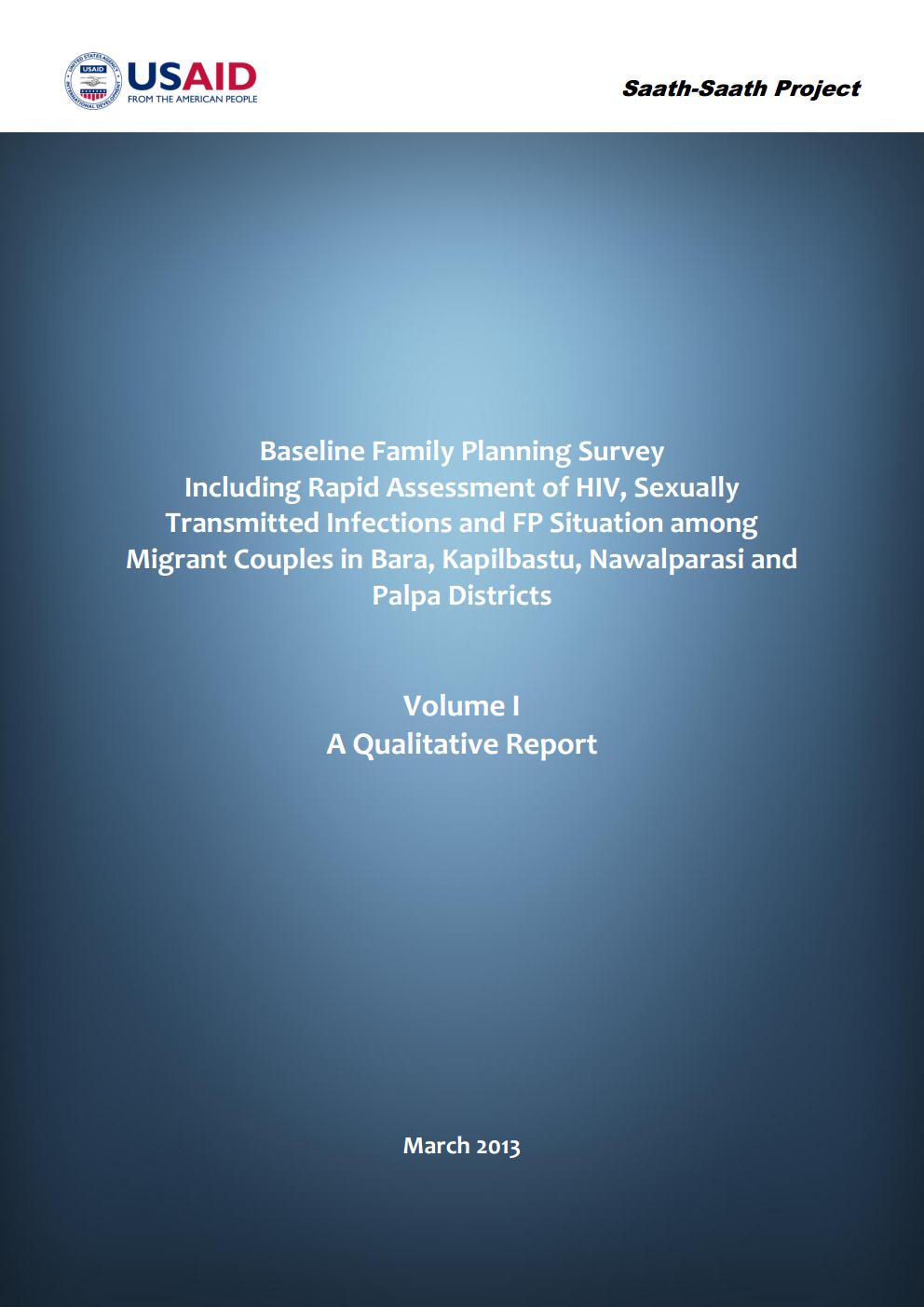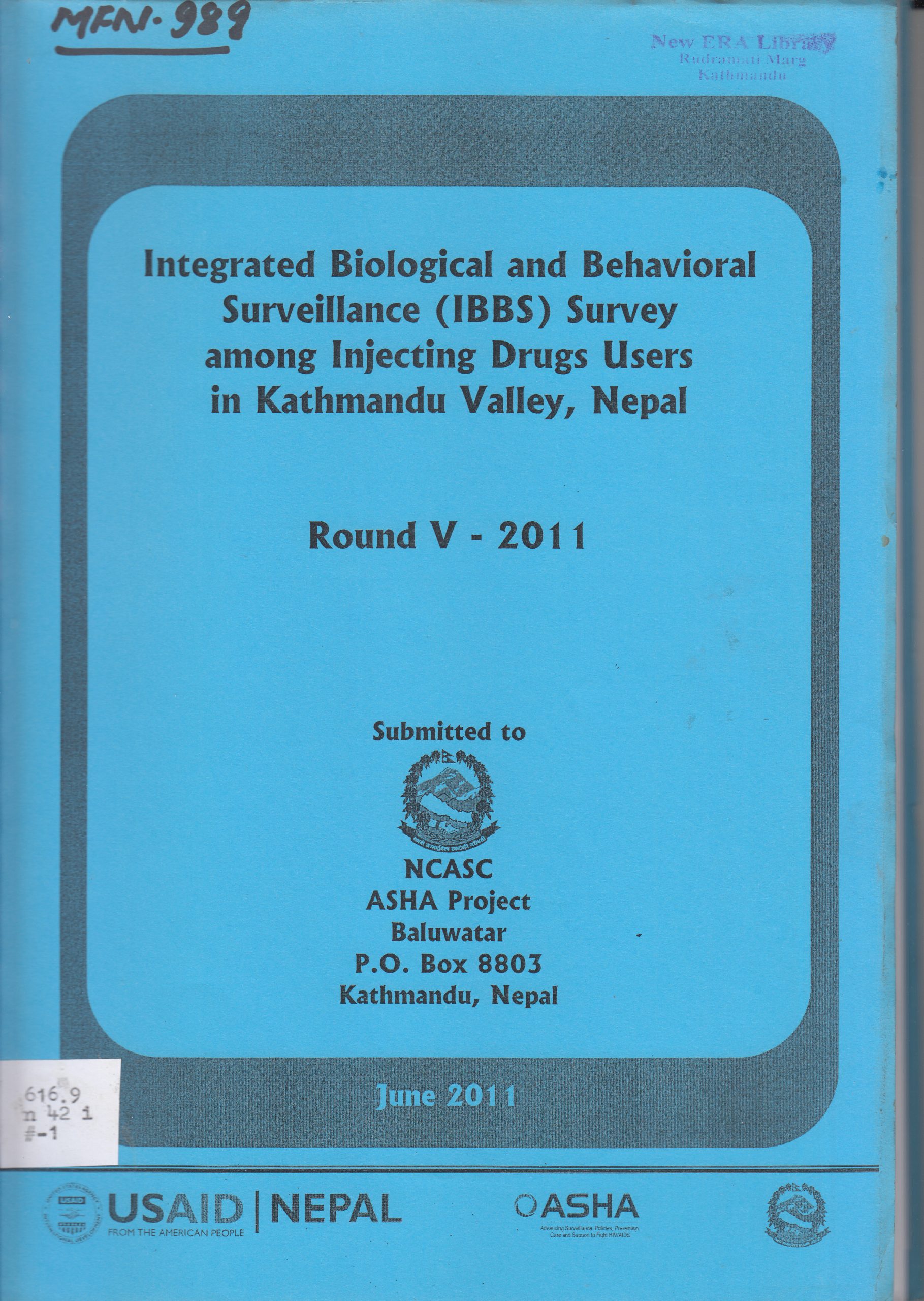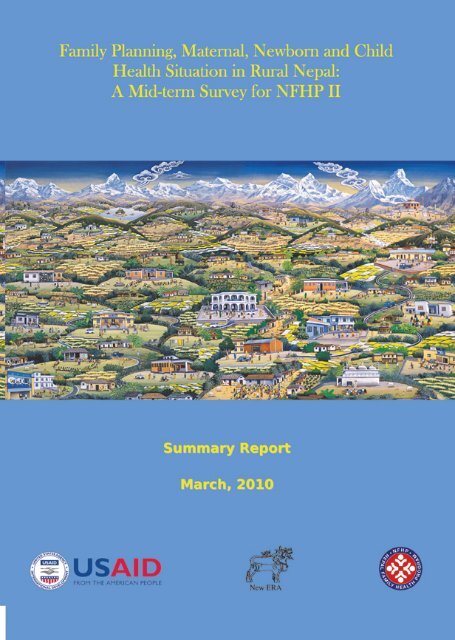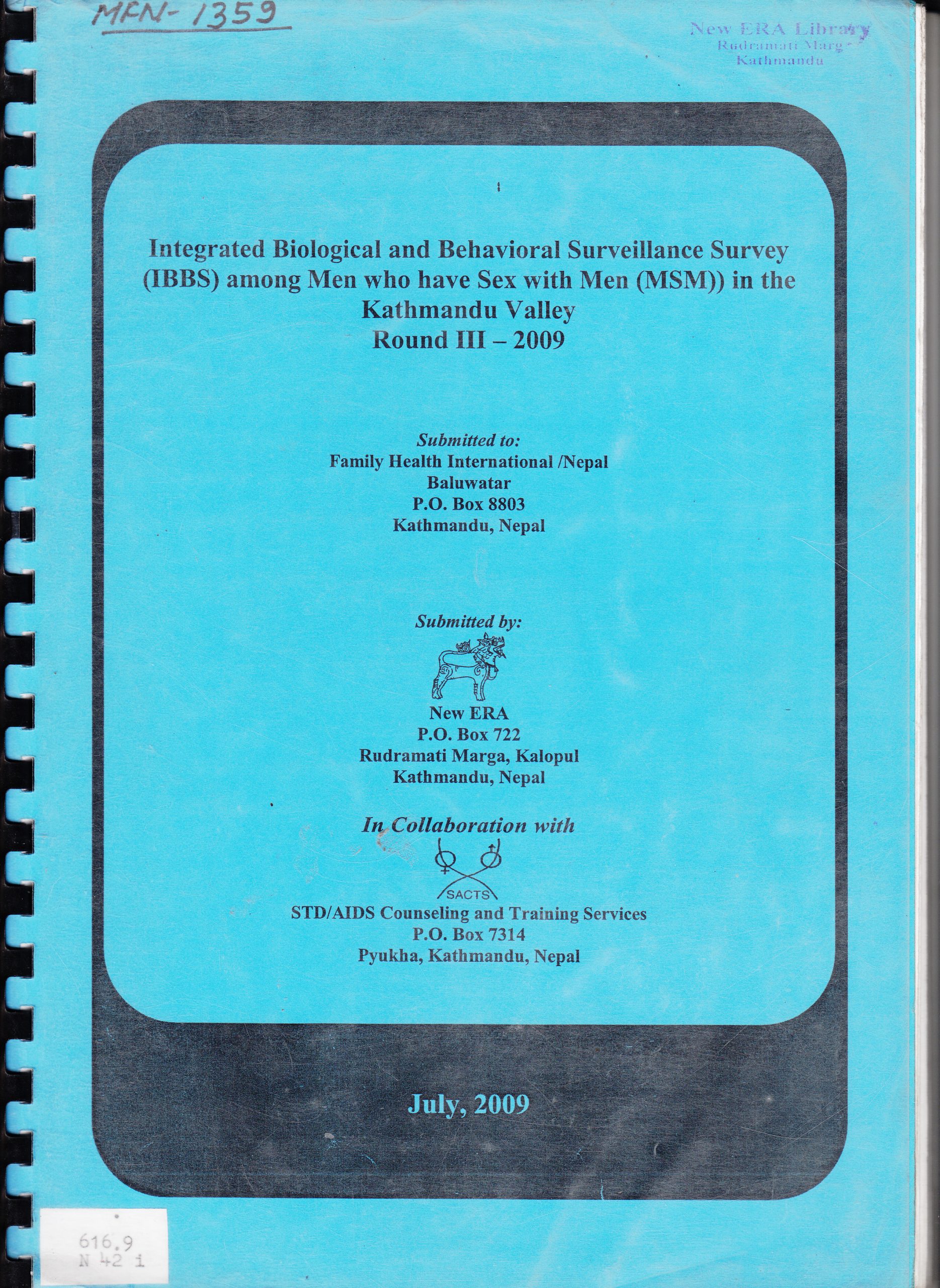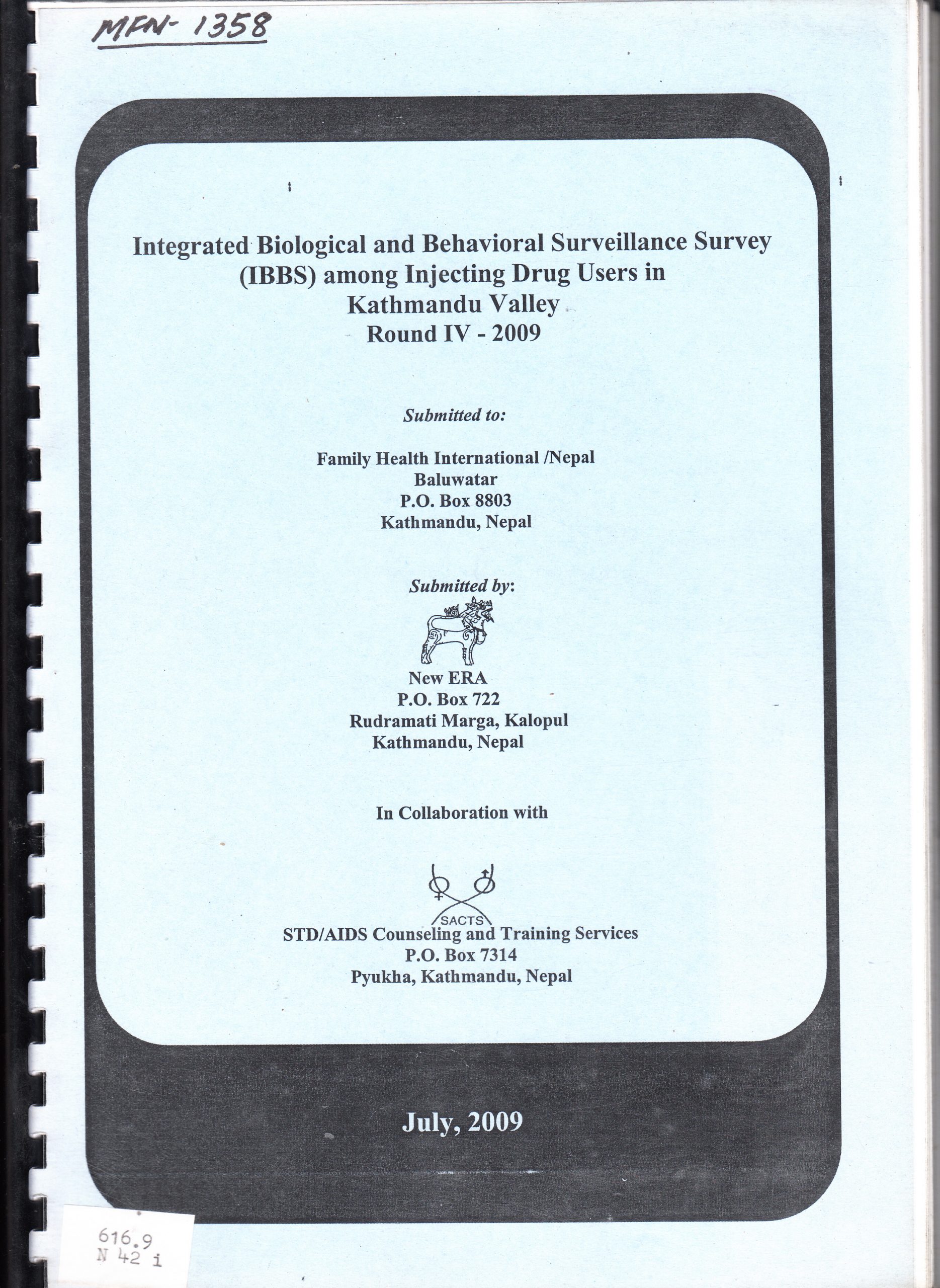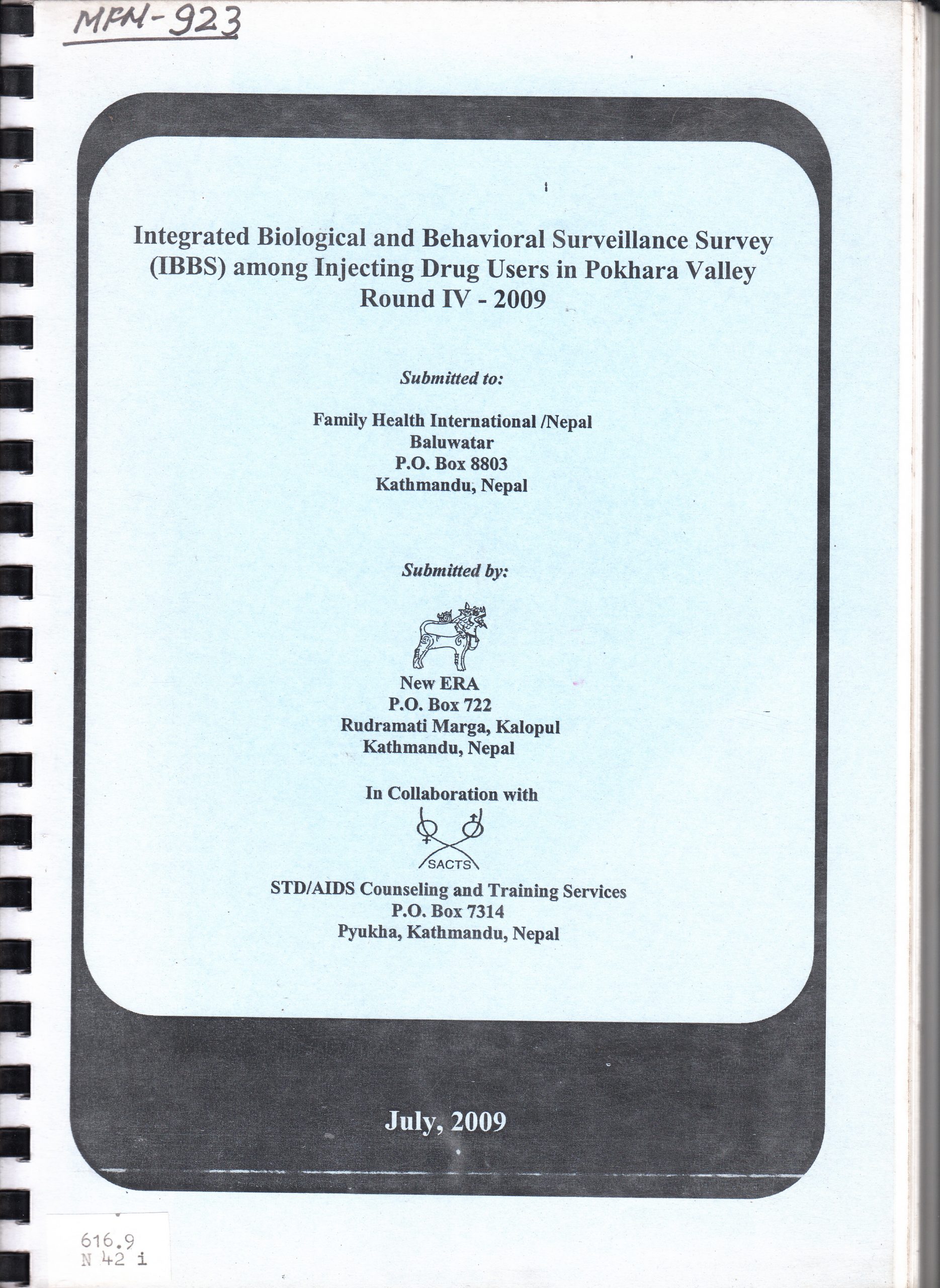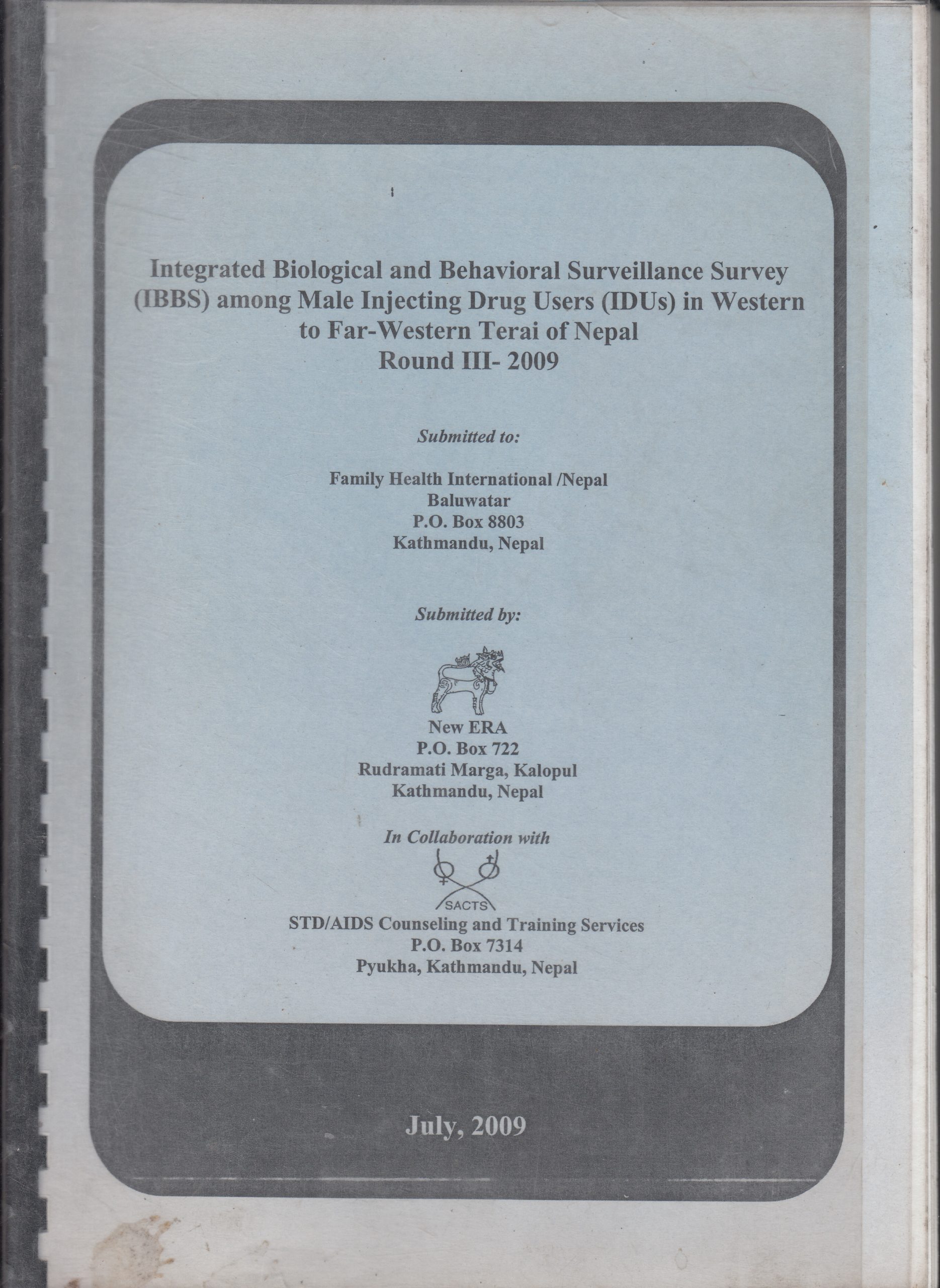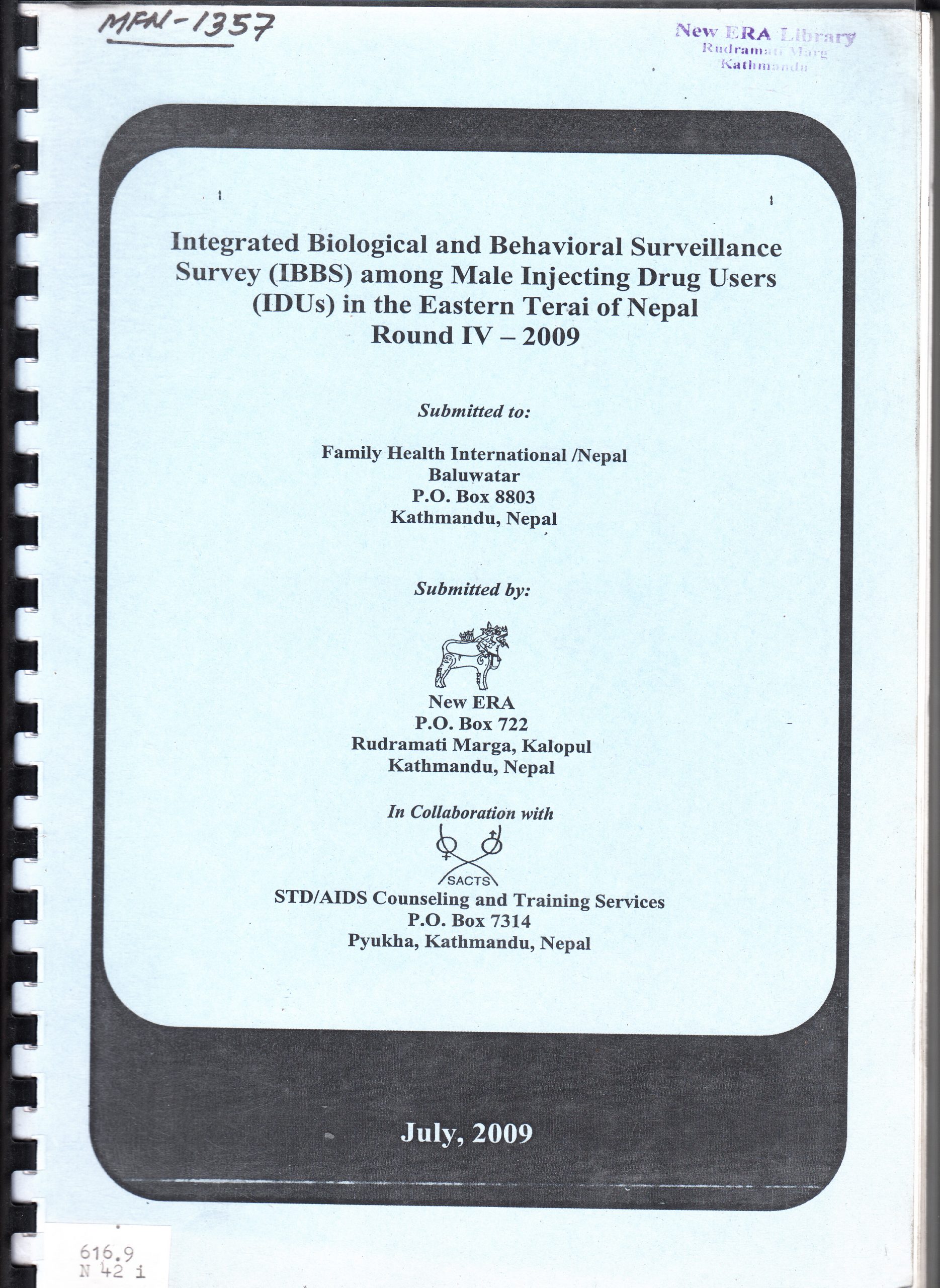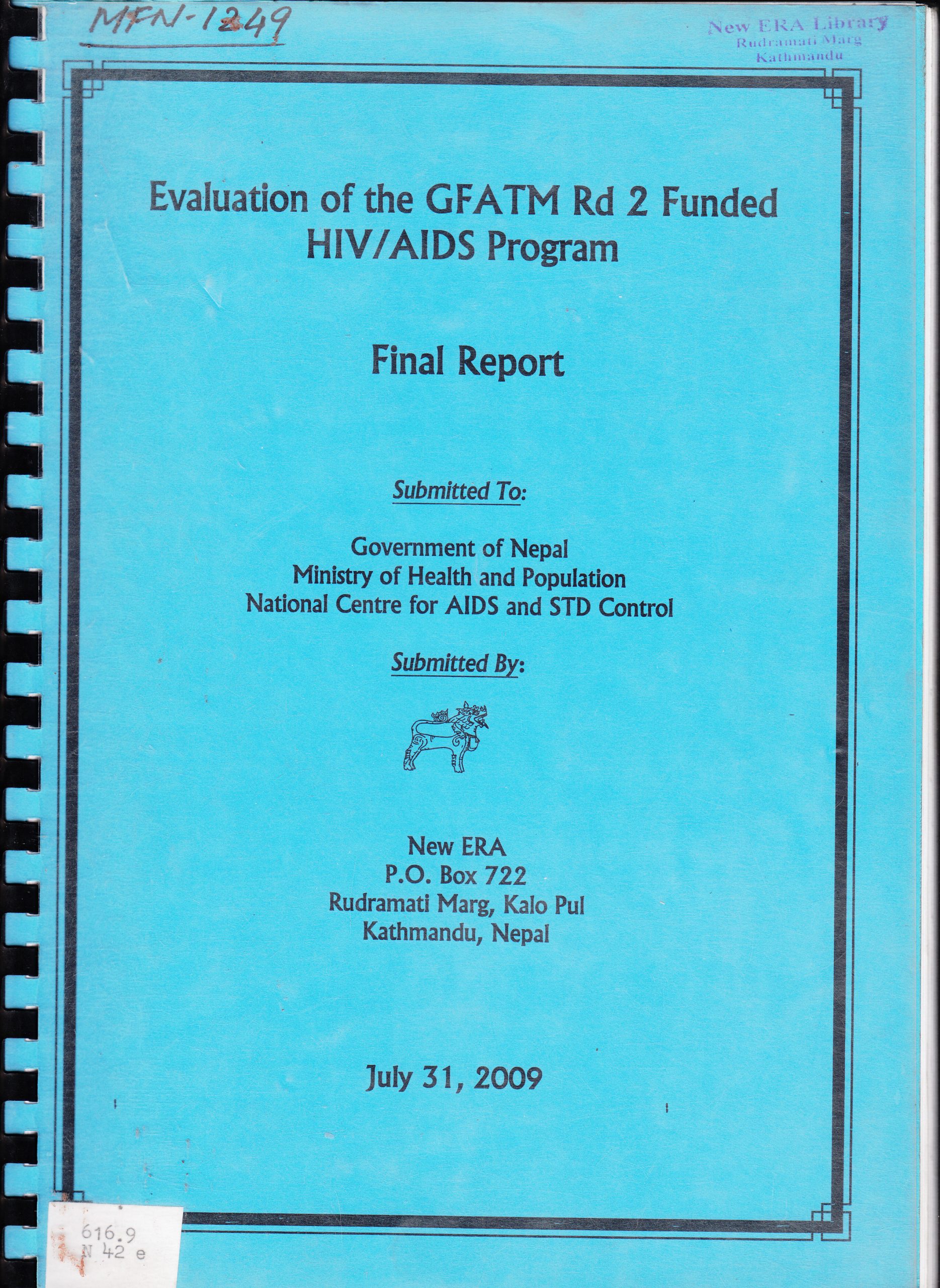Saath Saath Project (SSP) of FHI360 with financial support of USAID launched an integrated package program to provide services on Family Planning, HIV/STI prevention, care and treatment support targeted to migrant and their spouses in SSP districts to prevent the STI transmission to improve the quality of health services among selected most-at-risk population. This survey was designed to obtain baseline information on Knowledge, Attitude and Practice (KAP) of family planning and HIV/STI among migrant and their spouses of four districts namely Bara, Kapilbastu, Nawalparasi and Palpa districts. The study assesses the situation of family planning and HIV/STI and needs of services for the community of the study areas.
Report Type: HIV/AIDS
Integrated Biological and Behavioral Surveillance Survey (IBBS) among Injecting Drug Users in Kathmandu Valley, Nepal: Round V – 2011
This is the fifth round of IBBS survey among the male Injecting Drugs Users (IDUs) in Kathmandu Valley. This survey was carried out under the comprehensive National HIV and STI Surveillance Plan developed by The National Centre for AIDS and STD Control (NCASC) with objective to determine the STI prevalence and trends of HIV among the study population. The study assesses socio demographic characteristics; oral drug use; alcohol intake; drug injecting practice, sexual behavior; STI/HIV/AIDS awareness and treatment practices among IDUs in study sites. The respondents of the survey were clinically health checked-up and provided syndromic treatment with medicines free of cost for STIs problems.
Family Planning, Maternal, Newborn and Child Health Situation in Rural Nepal: Mid-term Survey of NFHP II
This mid-term survey of Nepal Family Health Program (NFHP) Phase II was envisaged to monitor the progress in the NFHP’s impact and outcome indicators. The study was conducted in 20 NFHP supported districts and 20 control districts, which allowed for assessment of project impact. Baseline information as derived from the 2006 Nepal Demographic and Health Survey was taken into account to enable monitor changes. The current study, therefore, was conducted in 111 clusters overlapping with the 2006 NDHS clusters.
Follow-up Study on “You Are No Exception” Campaign among Most-at-Risk Groups in Hot Zones in Nepal
This study was undertaken to determine the exposure and impact of the “You Are No Exception” campaign among the most-at-risk groups in high-risk areas in Nepal. The survey covered the following seven categories of population groups who are considered to be most at risk: FSWs, clients of FSWs, transport workers/truckers, migrant workers, and Uniformed Service Personnel (USPs). The study analyses the various aspects of knowledge and utilization of condoms by the target population following the USAID-funded Nepal Social Marketing and Franchise Project’s (N-MARC) “You Are No Exception” campaign.
Integrated Biological and Behavioral Surveillance Survey (IBBS) among Men who have Sex with Men (MSM) in the Kathmandu Valley, Round III – 2009
This is the third round of the IBBS conducted among the MSM in the Kathmandu Valley. The survey was carried out to determine the prevalence of HIV and STI (syphilis, chlamydia trachomatis and neisseria gonorrhoea among MSM in study area. The study assesses their HIV/STI related risk behaviors, including their sexual practices. The survey also measured the exposure to the intervention programs targeted at MSM in the valley. The study had also analyzed trends through the comparison of the data on selected variables obtained from the first, the second and the third rounds of the IBBS. The information was collected through using structured questionnaire and clinical test of blood, urine and swab samples.
Integrated Biological and Behavioral Surveillance Survey (IBBS) among Male Injecting Drug Users (IDUs) in Kathmandu Valley, Round IV – 2009
This is the fourth round of Integrated Biological and Behavioral Surveillance Survey (IBBS) conducted among the male Injecting Drug Users (IDUs) in the Kathmandu valley. The study was to measure the prevalence of HIV and syphilis among the male IDUs of the study area. The study assesses socio-economic characteristics, drug using and neddle sharing behaviors, sexual behavior including knowledge of HIV/AIDS, treatment of STIs and use of condoms. The health personals among the study team provided syndromic treatment to the STI problems
Integrated Biological and Behavioral Surveillance Survey (IBBS) among Injecting Drug Users (IDUs) in Pokhara Valley, Round IV–2009
This is the fourth round of IBBS carried out among the 300 male IDUs in the Pokhara Valley. The study was to measures the prevalence of HIV and syphilis and associated risk behaviors among IDUs. Along with a structured questionnaire, blood samples were also taken to measure the prevalence of HIV and syphilis using the determine HIV 1/2 test to detect antibodies against HIV, Uni-Gold test as a second test and SD Bioline HIV 1/2 test as a tie-breaker test. The Rapid Plasma Reagin (RPR) analysis with qualification has been used to diagnose syphilis, and the diagnosis was confirmed by means of the Treponema Pallidum Particle Agglutination (TPPA) test.
Integrated Biological and Behavioral Surveillance Survey (IBBS) among Male Injecting Drug Users (IDUs) in Western to Far-Western Terai of Nepal, Round III – 2009
This third round IBBS among 300 male Injecting Drug Users (IDUs) was carried out from the seven terai districts namely Rupandehi, Kapilbastu, Dang, Banke, Barkia, Kailali and Kanchanpur of Western to Far-Western Development Region of Nepal. The study was to measure HIV and syphilis prevalence; HIV/STI related risk behaviors; sexual and drug using habits. The examined the exposure to HIV/AIDS/STI awareness and prevention programs targeted at IDUs in the study areas. The study also assesses socio-demographic characteristics, STI/HIV/AIDS prevalence,
Integrated Biological and Behavioral Surveillance Survey (IBBS) among Male Injecting Drug Users (IDUs) in the Eastern Terai of Nepal, Round IV – 2009
This is the fourth round IBBS among the male Injecting Drug Users (IDUs) of eastern terai of Nepal. The study carried out from Jhapa, Morang and Sunsari districts. The main objective of the study was to measure the HIV and STI prevalence among the study population. The study determines the prevalence of HIV/AIDS and assesses HIV/STI-related risk behavior among the IDUs in the study areas. The study also analyzes the IDUs’ socio-demographic characteristics, awareness of HIV/STIs, sexual behavior, condom use and exposure to intervention programs in the study areas.
Evaluation of GFATM Rd 2 Funded HIV/AIDS Program
This study was conducted with financial support from the Nepal Center for AIDS STD Control (NCASC) with the aim of assessing the progress on the stated outcomes of the Global Fund to Fight AIDS, Tuberculosis and Malaria (GFATM) Rd 2 HIV/AIDS program objectives as well as drawing lessons learnt over the implementation period in eight districts. The study had put forward two study approaches: The first one was followed to work with migrant laborers and the second with young people aged 10-24 years. The study was a mixture of quantitative and qualitative research methods for collecting and analyzing empirical data. The study also makes strategic policy recommendations in relation to tackling problems related to the program.



